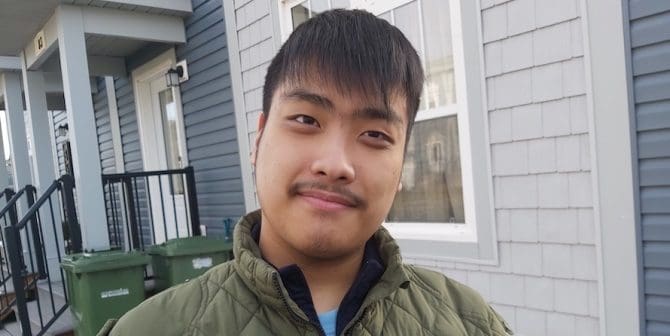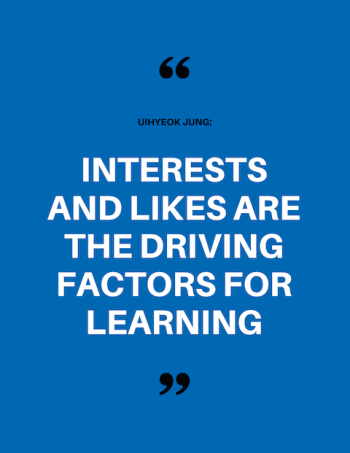Written by Uihyeok Jung, a former Leading Readers volunteer
A boy who hated English learning
I came from a city called Daegu in Korea, and hated learning English during elementary school. Back then, I thought I would never use English later in life. Now, I look back at that kid who hated foreign languages being suddenly dropped in the middle of a rural Nova Scotia and becoming one of the first Asian kids to attend school. It's all pretty wild to remember! It was 2012, when Gangnam Style was really big, and every kid would do the cliché Gangnam style dance. It was terrific!
Our family was a stereotypical working-class family. We didn’t have the financial capacity or time to provide for private English education. So, my siblings and I just learned English by simply being there. I don’t know when I started to really understand English, but one day it just ticked and I started to just understand everything. Perhaps It was because of the fact that I was linguistically isolated, and forced to be socialized in an English-speaking environment: making English friends, communicating, playing games together, etc. I mean, that would explain why I am more culturally and ideologically 'Canadian' than 'Korean' in comparison.
Becomes a teen teaching English reading
During the late years of high school, I found myself with a lot of free time and procrastinated all day at home. I was quite new in Spryfield, so I thought it would be best to volunteer locally in the area. Volunteering would not only serve my boredom but also help me to get used to the community and build volunteering experience for the future. I began my search at the Spryfield public library, and coincidentally that day was also the last day to apply for a program, called Leading Readers. I signed up immediately and got into the program.
The program taught me a lot about teaching, especially how to teach English to non-native speakers of the language. Being a Korean Canadian, I was naturally assigned to some Korean kids in the program to engage in literary activities while also learning English. I felt proud to provide the Korean kids in this community with an opportunity that I did not have, which is to learn English outside of public schooling. As a result of this program, I learned a lot of useful teaching methods for language learning and that led me to my tutoring side career.
Memories and lessons from Leading Readers
The best memory I can recall of the Leading Readers Program was the joy of teaching I had felt by the end of the program. Watching the improvements of the kids I’d worked with—their communication, grammar, and reading skills— was fulfilling. It may not be a specific memory, but watching their real linguistic growth and feeling that I'm making a difference—not only to society but for those kids as well—made me feel important.
One particular student I remember is Gyujin. Although he had a hard time focusing, both in-person and online, he definitely had the passion to read books that interested him. It was striking to see how well he read the books he had independently picked compared to the books I could find for him. Interests and likes are the driving factors for learning, especially for kids and young adults. So I advise other volunteers in this program to let the readers find books that they are interested in and drive your methods in guiding them with the reader’s interest upfront, rather than using the traditional methodology for teaching and leading.
Complications of online learning
Due to COVID-19 pandemic, the Leading Readers program eventually turned online. I must say, it was frustrating. The online library was very limited in books I could use and the readers book packages were not interesting to the readers. We were not well prepared for the online transition, which made the experience less valuable for both volunteers and readers.
A commitment to do more
Although the pandemic made the program more complicated for both volunteers and kids, Leadings Readers was nonetheless an awakening experience for me. I started to see the world with a more international point of view and I want to be more impactful to our society and beyond. Once the COVID-era ends in Canada, I plan on volunteering more actively—perhaps overseas, where help is most needed, or here locally to help out my fellow Nova Scotians.
Uihyeok Jung's story is one in a series of spotlights made for Volunteer Appreciation Week 2022, called When You Shine. Each shared story is an expression of the Library's appreciation for the many volunteers making our communities better every day.




Add a comment to: When You Shine: Volunteer Uihyeok Jung